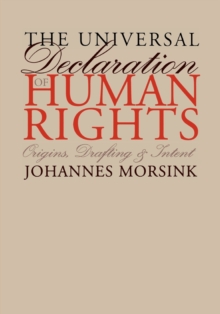
Human Rights and Labor Solidarity : Trade Unions in the Global Economy Hardback
by Susan L. Kang
Part of the Pennsylvania Studies in Human Rights series
Hardback
Description
Faced with the economic pressures of globalization, many countries have sought to curb the fundamental right of workers to join trade unions and engage in collective action.
In response, trade unions in developed countries have strategically used their own governments' commitments to human rights as a basis for resistance.
Since the protection of human rights remains an important normative principle in global affairs, democratic countries cannot merely ignore their human rights obligations and must balance their international commitments with their desire to remain economically competitive and attractive to investors. Human Rights and Labor Solidarity analyzes trade unions' campaigns to link local labor rights disputes to international human rights frameworks, thereby creating external scrutiny of governments.
As a result of these campaigns, states engage in what political scientist Susan L.
Kang terms a normative negotiation process, in which governments, trade unions, and international organizations construct and challenge a broader understanding of international labor rights norms to determine whether the conditions underlying these disputes constitute human rights violations.
In three empirically rich case studies covering South Korea, the United Kingdom, and Canada, Kang demonstrates that this normative negotiation process was more successful in creating stronger protections for trade unions' rights when such changes complemented a government's other political interests.
She finds that states tend not to respect stronger economically oriented human rights obligations due to the normative power of such rights alone.
Instead, trade union transnational activism, coupled with sufficient political motivations, such as direct economic costs or strong rule of law obligations, contributed to changes in favor of workers' rights.
Information
-
Available to Order - This title is available to order, with delivery expected within 2 weeks
- Format:Hardback
- Pages:336 pages
- Publisher:University of Pennsylvania Press
- Publication Date:28/06/2012
- Category:
- ISBN:9780812244106
Information
-
Available to Order - This title is available to order, with delivery expected within 2 weeks
- Format:Hardback
- Pages:336 pages
- Publisher:University of Pennsylvania Press
- Publication Date:28/06/2012
- Category:
- ISBN:9780812244106










